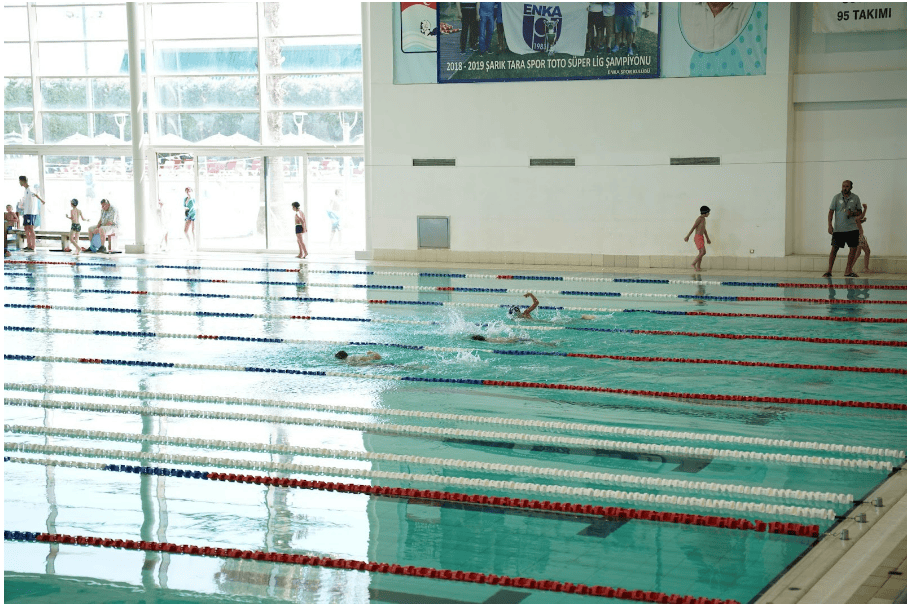Preparing for the Future: Why Malaysian Parents Choose International Schools
 Schooladvisor Team
Schooladvisor TeamIn Malaysia, there has been a shift in parents' approach to their children's education. Traditionally, Malaysian parents enroll their children in nearby government schools and allow them to progress through the national education system. However, in 2012, the Malaysian Ministry of Education made a significant decision to remove the restriction on the enrollment numbers of Malaysian students in international schools. As a result, by 2013, Malaysian students had emerged as the dominant group within these schools, surpassing the number of expat families living in the country.
According to a Market Intelligence Report on International Schools in Malaysia published by ISC Research in December 2019, it was revealed that 45% of students in the country's prestigious international schools were Malaysian. Alongside them, there were notable representations from various nationalities such as British, South Korean, Chinese, American, Australian, and Indian expatriates.
So why are parents opting for international schools? Apart from the quality education, world class infrastructure and potential university pathways, here are the reasons you should consider sending your children to international schools in Malaysia:
Personalized learning with Expat Teachers

Expat teachers in international schools usually possess advanced qualifications such as Master's or PhD degrees.
Today, parents place immense importance on their children's education, and they value the presence of exceptional expat teachers in international schools. These educators often hail from prestigious backgrounds in the UK, US, and Australia and boast highly esteemed qualifications and expertise in specific subjects.
International schools provide an environment where children enjoy greater autonomy and flexibility in crafting and organizing lessons. Teachers employ effective teaching methodologies that extend beyond textbooks, incorporating props and interactive activities to actively engage students in the learning process. Besides that, these fun activities help students develop empathy and understand different points of view, which are important in getting along with others and tackling a wide range of topics and situations.
School days at international schools are full of exciting learning experiences and opportunities that help students develop their skills and go beyond what they're used to. Everyone is encouraged to explore and follow their passions and interests to the fullest. When you step into a classroom, you'll find productive interactions and collaborations between students, their peers and the teacher. With smaller class sizes, international schools enable teachers to closely monitor each student's progress and provide personalized support to those who need it.
For example, international schools with an American curriculum places a strong emphasis on ongoing assessments to ensure students' success. By conducting regular checkpoints along the way, a school can identify struggling students early on, preventing them from receiving low marks at the end.
Furthermore, such schools employ project-based assessments, performances, and skill demonstrations, allowing students to apply their knowledge in real-world contexts throughout the year. This comprehensive approach provides teachers with a holistic view of students' abilities, enabling them to tailor instruction accordingly and ensure that no student falls behind in their learning. The teachers are quick to intervene and provide extra assistance when they notice a student struggling, while also offering more challenging tasks to students who grasp the material easily.
Fostering Holistic Development
In Malaysian public schools, the emphasis is often placed on rote learning and achieving high exam scores. However, many parents are beginning to realize the importance of encouraging critical thinking, goal setting, reflection, and instilling core values.
As such, they are enrolling their children in international schools. International schools offer a more well-rounded education and organized co-curricular system, allowing students to explore their subjects through hands-on and experiential learning.
International schools provide an environment where students can actively pursue their passions and nurture altruistic qualities by actively contributing to their local communities. Through participation in extracurricular pursuits, students learn time management skills while developing their leadership abilities and sportsmanship. This fosters qualities of organization, confidence, and resilience necessary to confront challenges.
Additionally, international schools provide students with a comprehensive education that goes beyond the confines of the traditional curriculum. Some schools offer a diverse array of up to 150 co-curricular activities, such as sports, camps, trips, student leadership opportunities, and the arts, students at international schools are provided with the opportunity to explore new skills and uncover their passions.

At international schools, students will be coached and trained by real-life experts for each sport.
Best part, there are international schools that have internship programs that equip its Year 12 students with real-world knowledge and skills that will set them apart. During this internship, students have the invaluable opportunity to work alongside experienced professionals in the industry, gaining firsthand experience and practical skills.
By combining academic excellence with practical experience, these schools ensure that its students are not only well-prepared for their future careers but also equipped with the essential skills needed to thrive in life.
Preparing Students for an AI-Driven Future
With the rapid advancement of artificial intelligence (AI) and the increasing prevalence of technologies like ChatGPT, it has become crucial for students to learn about AI at a young age. While AI represents progress and innovation, its impact on the current workforce and how people interact with technology cannot be overlooked.

Artificial Intelligence (AI) is already being taught in many international schools.
According to McKinsey and Company, the growing sophistication of AI and automation technology could potentially displace 4.5 million jobs in Malaysia by 2030. On a global scale, this figure could rise up to a staggering 800 million jobs. However, the global management consulting firm also predicts that during the same period, around six million new jobs will be created in Malaysia. This calls for the workforce to be equipped with digital knowledge and skills to adapt to the rapid changes in the technology landscape.
In light of these predictions, it is crucial for the younger generation to be prepared for an increasingly digital future. Skills such as programming, robotics, and application development are becoming increasingly important for students to build a solid foundation for their future careers.
Many international schools have recognized the significance of these skills and have embedded them into the coursework of various subjects, including Physics, Chemistry, Mathematics, and ICT. This approach allows students to explore and be creative with these subjects, enabling them to gain a better understanding of AI and its applications.
As new tools continue to emerge and digitalization becomes more prevalent, international schools teach students how to adapt to these changes and, more importantly, how to leverage them to their advantage. By equipping students with a robust comprehension of AI and related skills, international schools enable them to confidently navigate the technology-driven world and gain a competitive edge over their peers.
International Education: Thriving in a Global Job Market
In today's highly competitive job market, the importance of a well-rounded education cannot be overstated.
While getting fantastic grades and enrolling in top universities is astounding, international schools demand more from their students. An international education not only provides valuable academic knowledge but also cultivates global citizenship in your child. By exposing students to diverse perspectives, cultures, and experiences, an international school equips them with 21st-century skills and understanding needed to thrive in an interconnected world.

A holistic education at international schools prepares a child for university and beyond.
International schools may be costly, but they offer a valuable and unparalleled learning experience. By choosing an international education for their children, Malaysian parents are making a forward-thinking investment in their future, ensuring they are well-prepared to meet the challenges and opportunities that lie ahead.
_(1).png)
